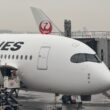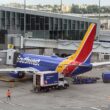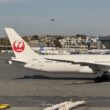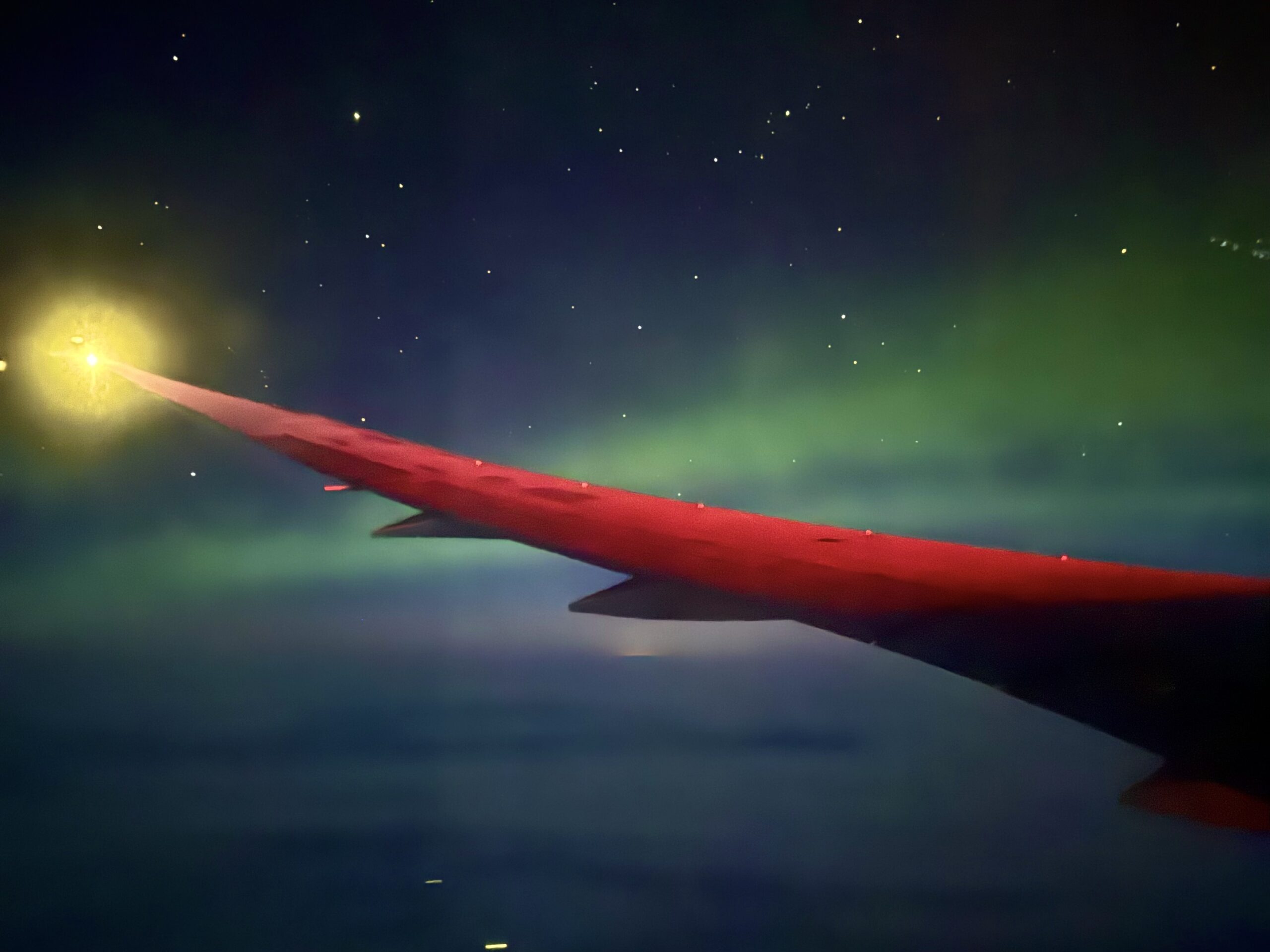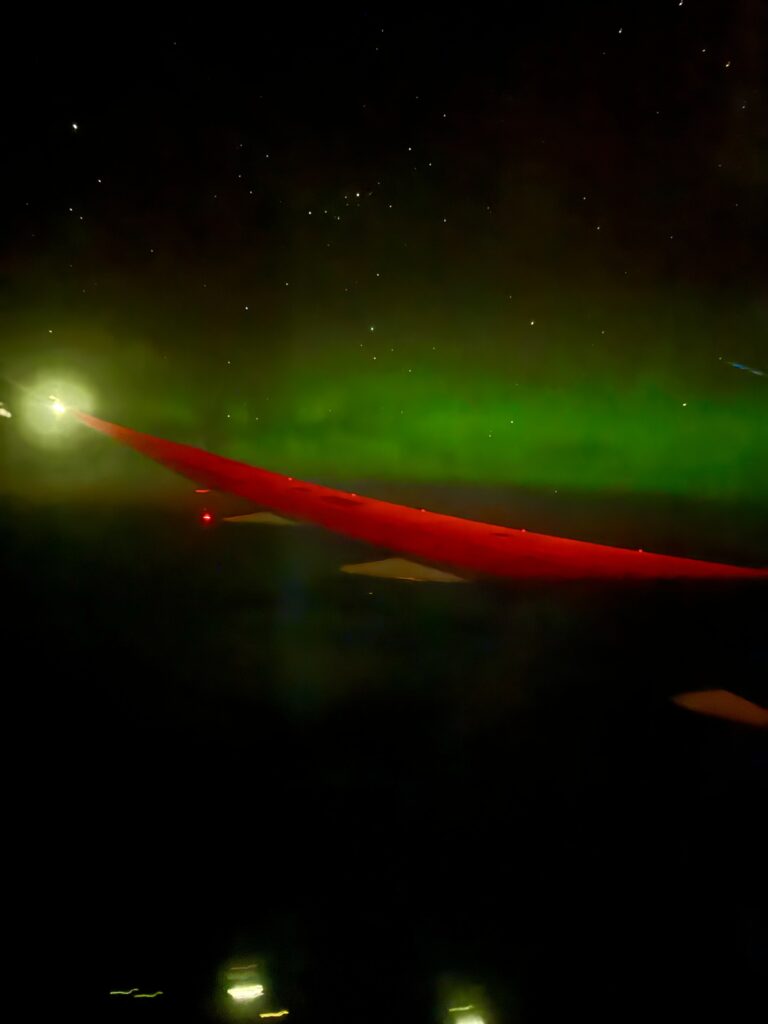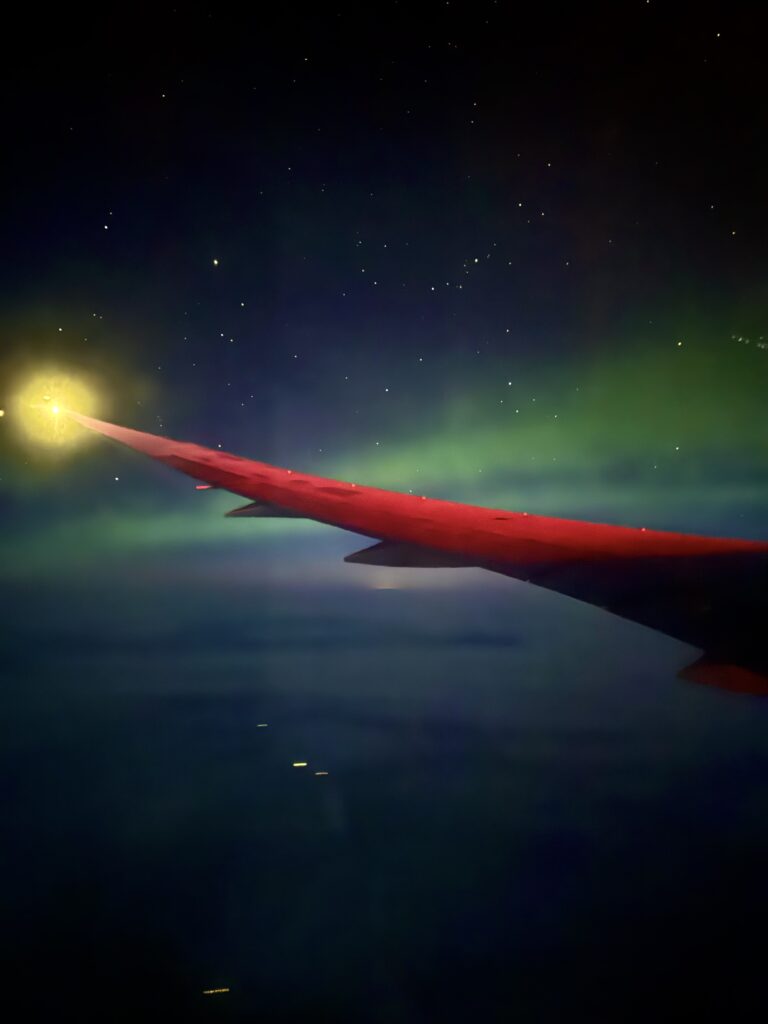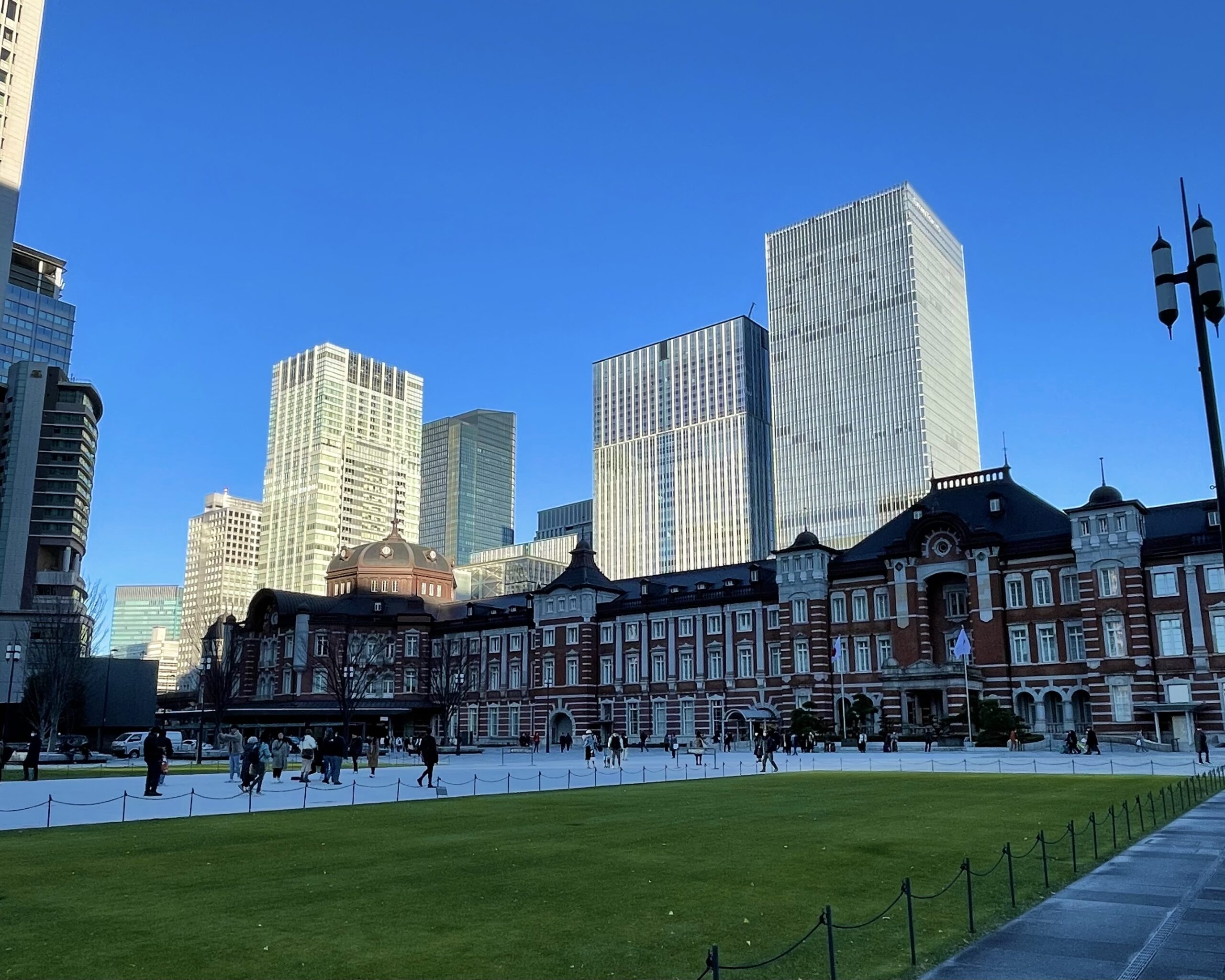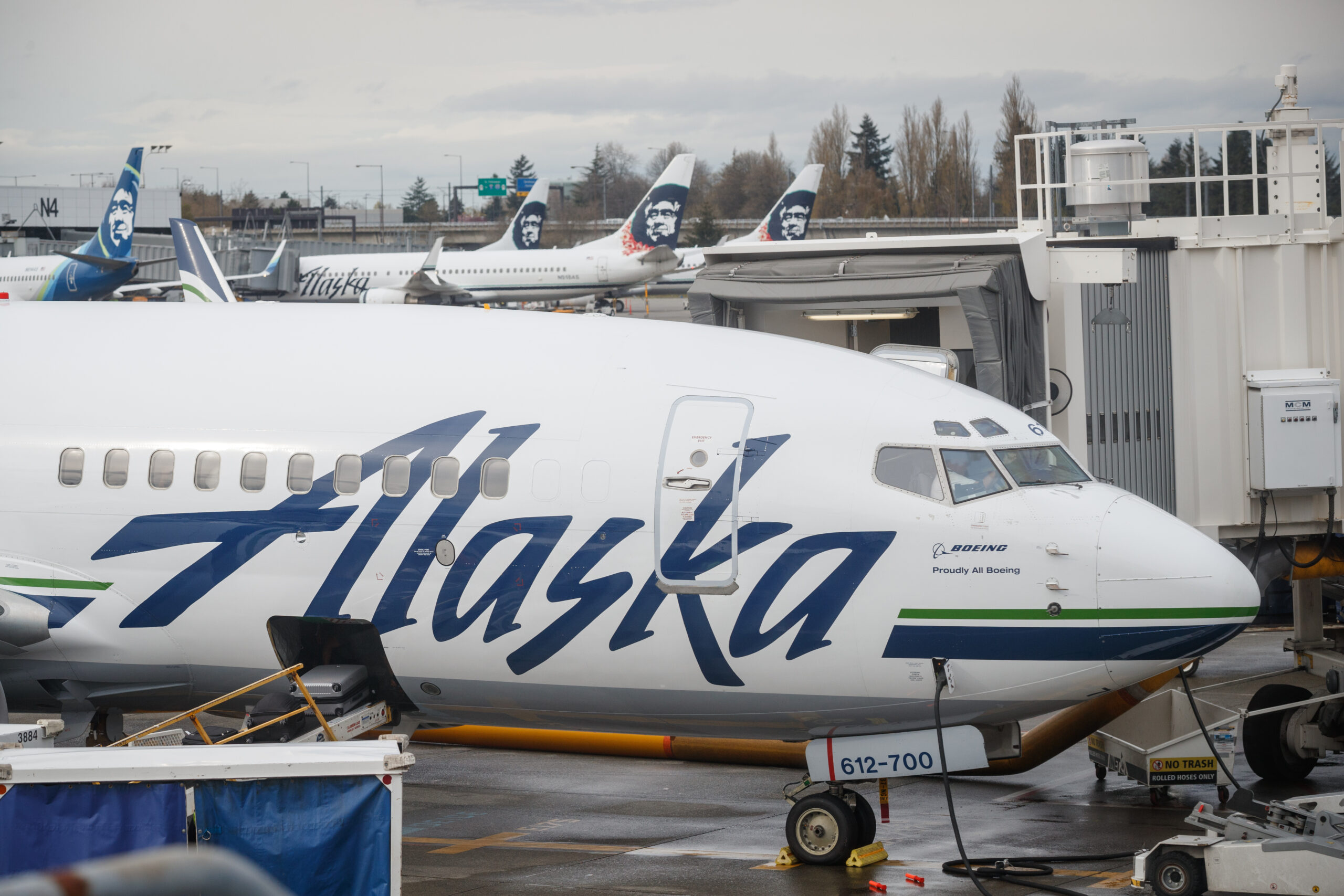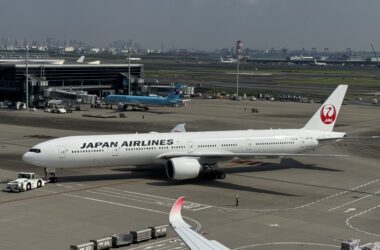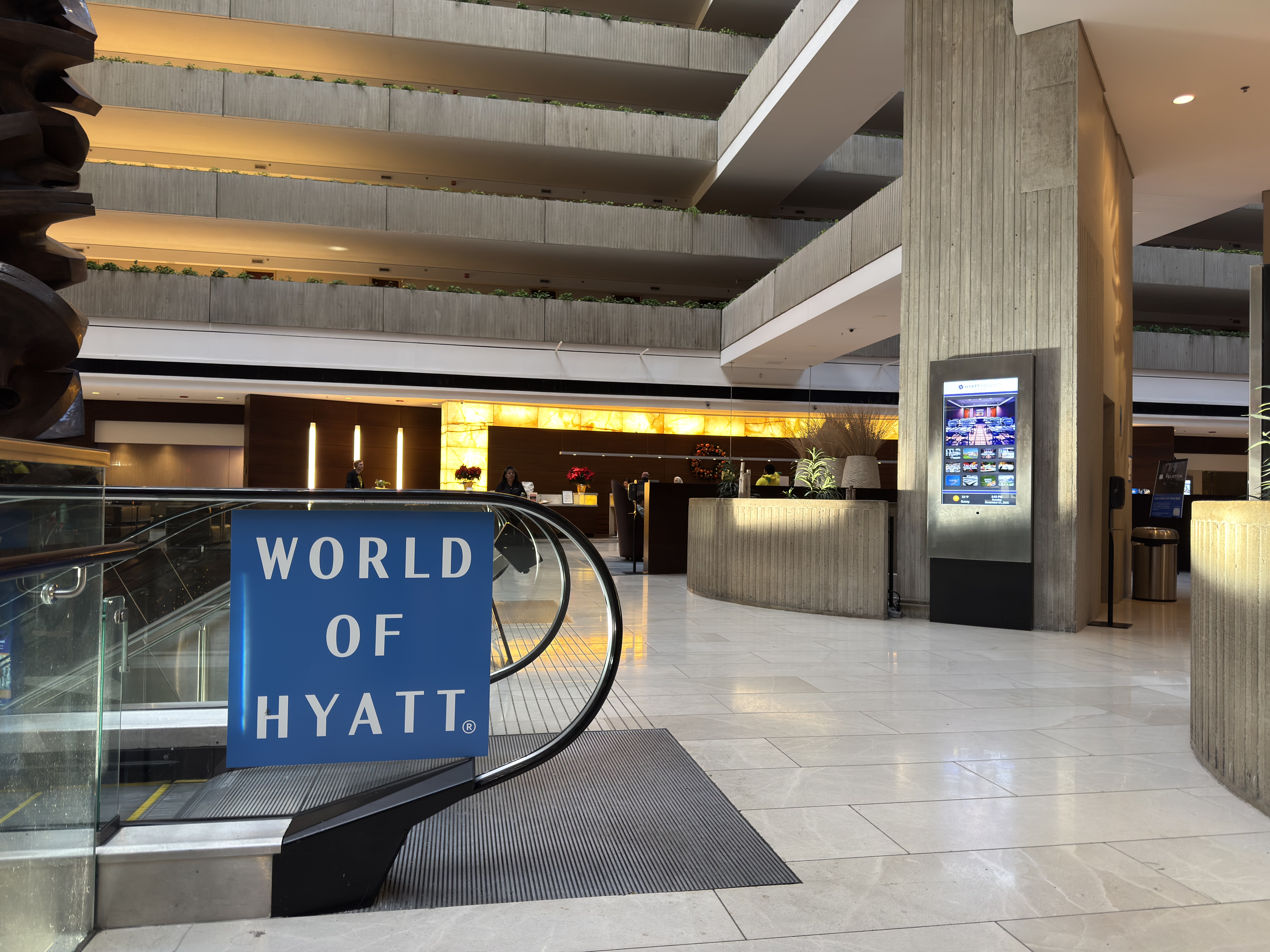Back in August of 2022, I was able to see the northern lights for the first time during my business class flight from Tokyo to Chicago. Since then, I’ve done a lot of research and worked to give the best chance to see the aurora during a flight again. Luckily, it happened again in January of 2024 on a flight from Tokyo to Boston. Being able to see them mid-flight involves a lot of luck, but you can give yourself the best chance with some preparation. Here are some of the important things I learned that increase those chances.
The Time Of Year
First, your chances will depend heavily on when you’re flying. The northern lights are best to see during the fall and winter months, more specifically September through March. The northern hemisphere gets the most dark hours during these months. The more hours of darkness, the more time there will be to see the northern lights.
The Route
The flight route also matters a lot. Your flight is obviously going to have to fly pretty far north. Flights to and from Scandinavian countries, Iceland, Alaska, and Northern Canada are good routes. Some long-haul flights (usually 12+ hours) will also take you far up north. Flights between the Americas and the Middle East, flights between Far East Asia and East Coast North America, and some flights between Far East Asia and Europe (due to deviations related to the Ukraine War) all have routes that fly over Alaska, Northern Canada, Greenland, and even the North Pole.
In addition to knowing these flight paths, the time of flight is also important. Dealing with flights to and from far northern destinations won’t be too hard, as you’ll have to leave very early in the morning, or arrive at night in order to maximize those dark hours in the air. For longer flights, you’ll have to choose flights that experience darkness at the northernmost points of the flight. I use Flightradar24 to figure that out. They have a daytime/nighttime map, and I search for a past flight and see when the flight experiences nighttime.
READ: Japan Airlines Economy Class, Tokyo to Boston
Choosing A Seat And Taking The Photos
Another important one is getting a good seat. You’re obviously gonna want a window seat, but try to get one facing north. Try to also get a seat away from the bathrooms and galley, since those sections tend to have lights on during the flight that will make you have to work around.
Even when the cabin lights are turned off, there are still going to be reflections that can make it through to your picture. You’re not going to want to see seatbelt signs, in-flight entertainment screens, or somebody’s phone in your shots. My advice is to grab a blanket or a jacket and cover your phone and window with it, making a hood for you and your camera. Yes, you are going to look weird, but I promise the photos are going to be incredible.
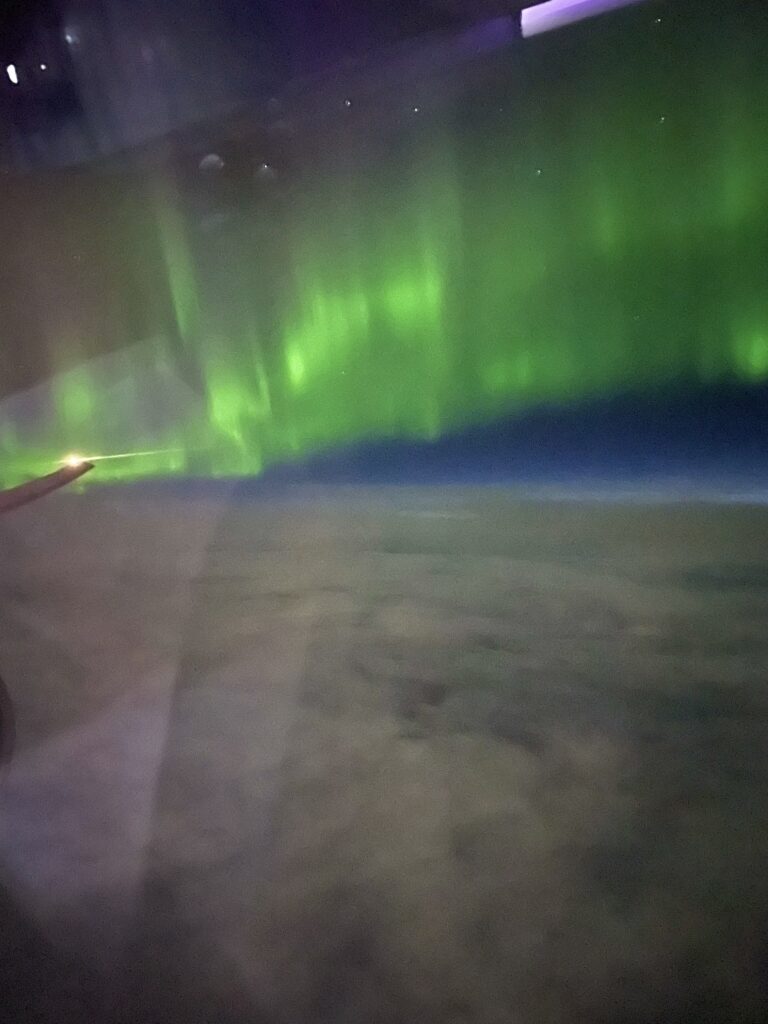
READ: Japan Airlines Business Class, Tokyo to Chicago
As you can see here, I have some reflections from inside the plane in this photo. This was when I saw them for the first time, and I rushed to take the picture not knowing how. But I learned the tips and was ready for the next time.
Stunning.
Related: 5 Ways The iPhone 15 Pro Max Made My Traveling Better
Bottom Line
The northern lights are one of, if not the best views you can see on a flight. Ever since I’ve seen them for the first time, they’ve always been on my mind whenever I go on a flight with a route far north.
In order to see the northern lights during a flight, try these 4 tips:
- Book a flight during the fall and winter months, ideally between September and March.
- Choose a flight with a route going far north.
- Choose a window seat facing north.
- Use a blanket or a jacket over you and your camera to block out the lights from inside the plane.
Knowing these will be absolutely worth it. If you’re lucky, you’ll be able to get a view of a lifetime!
All photos taken by the author.

